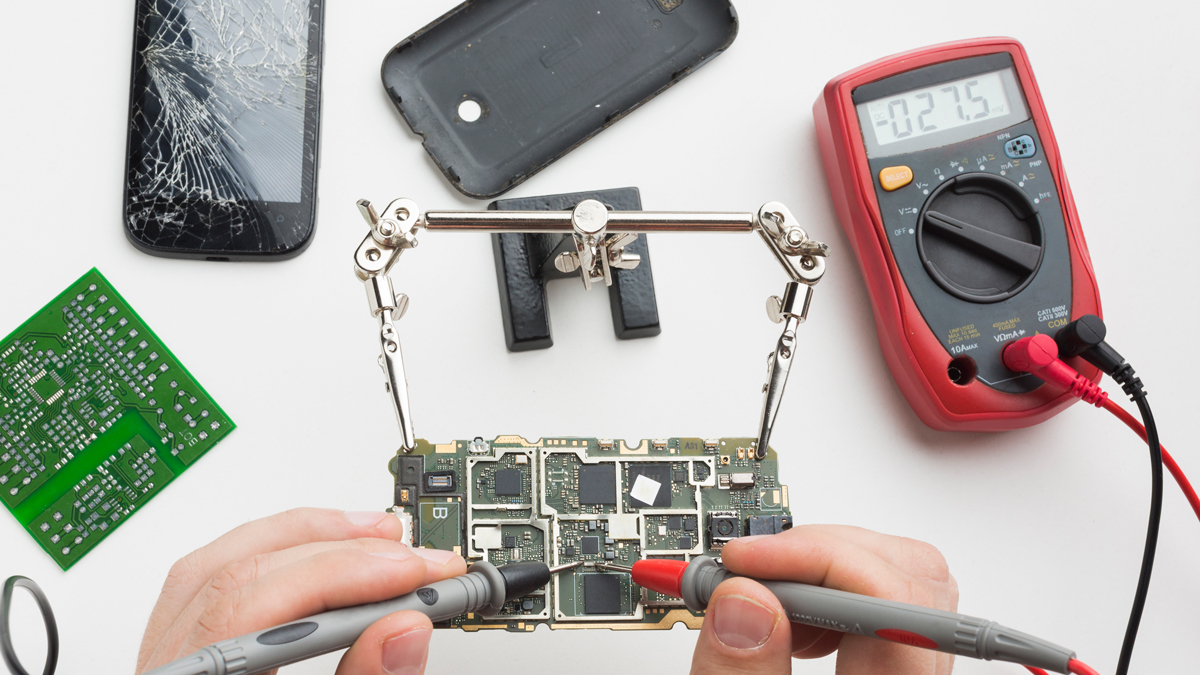Professionals who deal with electronics and electricity use a wide variety of tools. One of those tools is called a multimeter. Multimeters have been used since the beginning of the electronic industry. If you are handling electronics as an electrician, electrical engineer, or simply a homeowner, you should have a multimeter.
Multimeters are used for three main functions: measuring voltage, resistance, and continuity in electrical components and circuits. There is a wide range of prices for multimeters depending on their quality.
Multimeters are a very useful tool and having one with you or around the house is smart as it will help with any type of electronic work. The following are reasons why you should have a quality multimeter:
To Test Batteries
Most devices we use nowadays use lithium batteries. However, many of us still have and use old disposable batteries. Some of us have a drawer full of them. If so, you can use a multimeter to test if the batteries are dead or alive. You will use your multimeter’s voltage modes to test them. Your multimeter should have two probes colored red and black with plastic insulations. They will also have metal tips that look like pens.
By turning the dial to the DC Voltage position and connecting the metal tips to both ends of a battery, you can see its voltage displayed on the multimeter’s screen. Normal AA and AAA batteries should have a voltage of 1.5. If the reading is less, it means the batteries are dead.
To Check Extension Cords
Most of our extension cords are untouched and collect dust in the corner until it is time to replace them. You can check the state of any extension in your home or office if you are ever in doubt.
You can do so by turning on the multimeter and by inserting the black probe into one of the openings in the extension. Turn on the extension as well. Place the red probe’s end onto the matching prong.
If the extension is fully functioning, the multimeter will produce a beeping sound. It is an affirmation of a continuous current flowing through the extension.
Check Old Bulbs
Many of us also have many old bulbs and are not sure which ones work and which don’t. You can find out using a multimeter and reduce the clutter in your home. You should know that using a multimeter for this purpose will only work on incandescent light bulbs. Moreover, you will need a quality multimeter which you can learn more about from this page. It will take a simple process to sort out the bulbs. Turn on the multimeter and set it to continuity test mode. Place the end of the black probe on the threaded end of the bulb. Place the end of the red probe on the metallic circle at the bottom of the bulb. If there is no sound emitted, the bulb is dead. If the bulb is working, the multimeter will emit a tone.
Find a Hot Wire
If you regularly deal with electronics especially as a professional, you will often find that the problem is a hot wire. It is particularly so with light fixtures. You should begin by shutting off the power at the main switch. You should then proceed to check if electricity is reaching the switch.
Set the multimeter to measure AC voltage and set the range to 200V. Connect the black probe to the ‘COM’ terminal and the red probe to the ‘V, ohm’ terminal.
Touch the end of the black probe to the metal part of the light switch’s housing. Be careful to grab onto the plastic insulation. The multimeter should show a reading of at least 120V if the switch is working. If not, you have a hot wire and need to replace it.
To Find Bad Switches
You can use a multimeter to confirm the condition of a light switch you think is damaged. You should first disconnect the switch from its wires at the electrical box.
Connect the black probe to the ‘COM’ terminal and the red probe to the ‘V, ohm’ terminal. It does not matter which probe you use but connects it to the switch’s ‘COM’ terminal colored black. Since the switch is off, the reading on the multimeter’s display should be ‘0L’. turn on the switch and then repeat. The multimeter display should read a figure close to zero. If it still says ‘0L’ it is damaged.
The five points above are the reasons why a multimeter is vital for anyone interested in electronics. The advice is especially helpful for electrical professionals. However, it will also help you at home.

